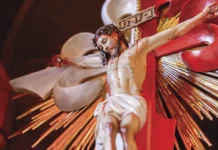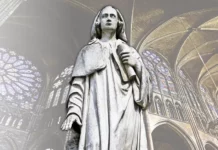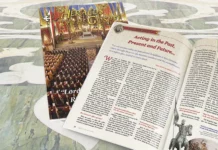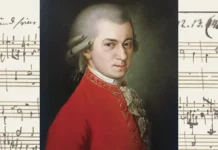In one of the most moving texts of prophetic literature, Isaiah shows the ingratitude of the chosen people for the benefits received from God, a situation that remains relevant today, since it can happen to any one of us.
The Book of Isaiah is the lengthiest of the Old Testament prophetic writings. Its sixty-six chapters, rich in theological and spiritual content, make it a true catechetical work. In the midst of all of this wealth, a small passage may go unnoticed, but it is a magnificent lesson in God’s love for His creatures, from whom He expects retribution. It is the song of the vineyard (cf. Is 5:1-7).
Written in all probability at the beginning of Isaiah’s ministry, this song – also known as the poem of the vineyard – is part of the literary bloc made up of the prophecies addressed to Israel (cf. Is 1-12). In this section, we find a series of intertwined comminatory and salvific oracles (1-5), followed by the account of Isaiah’s vocation (6) and the Book of Immanuel (7-12), in which messianic texts predominate. In other words, threats and promises alternate.
This poem or song can be contemplated from either a theological or a psychological perspective. The first, by an interpretation of the history of the relationship between God and His people, a relationship of Father and son; the second, in the instigation of a judgement of the Israelites upon themselves because of their evil conduct.
The song of the vineyard manifests all God’s solicitude for Israel, from which He hoped to reap good fruit, but which gave Him only grief. It is the bitter experience of the dedicated vinedresser who toiled in vain; but above all of the failed relationship between God and His people, of an unrequited love. In spite of all the Lord’s care for the chosen nation, it yielded Him only ingratitude.
What will He do with this “vineyard”?
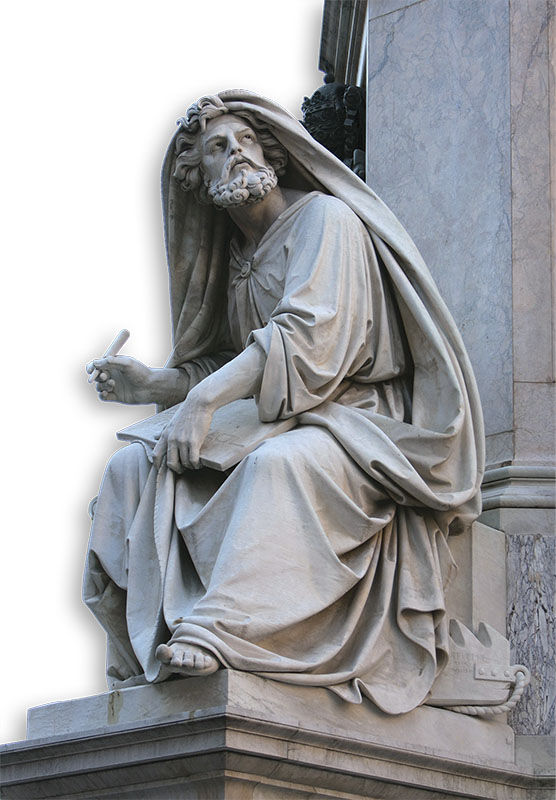
The prophet and his times
Most commentators agree that the year 760 is the approximate date of Isaiah’s birth. His precise indications about Jerusalem suggest that he was born in the capital of the Kingdom of Judah. He was married and had two children, to whom he gave symbolic names (cf. Is 7:3; 8:3).
This great prophet exercised his ministry for forty years (740-700). The beginning of his activity coincides with a period of prosperity won by late King Azariah (781-740), as a result of his military victories in the east and west of Israel. However, this well-being concealed an increasingly decadent socio-religious reality, which Isaiah did not fail to reproach.
Later, during the reign of Ahaz (736-727), the situation worsened. This monarch introduced the pagan cult into Judah in order to please the Assyrian king, from whom he had received military aid to face a threat from Syria and the Northern Kingdom of Israel.
These two states, wishing to resist the Assyrian influence in the region asked Ahaz to join them. In the face of his negative reply, they declared war on him and threatened to dethrone him. At this dangerous juncture, Ahaz asked the Assyrian king himself for help, contrary to the advice of Isaiah, who promised him divine intervention. Tiglath-Pileser III, the sovereign of that empire, advanced over the region of the Mediterranean Levant and put an end to the rebellion. As a result, Judah became dependent on Assyria, with all that this signified in the religious sphere.
With Hezekiah (727-687), son and successor of Ahaz, the situation initially improved. This pious king did everything possible to cleanse Jerusalem of the religious deviations introduced by his father. In the first years of his reign, he remained submissive to the Assyrian sovereign. However, he rebelled around the year 705, when there was a change of government in that country.
Jerusalem was surrounded by the Mesopotamian troops, but thanks to Heaven’s aid, the besieging army was forced to retreat (cf. 2 Kgs 18-19). Soon after, Isaiah left the scene.
The theology of Isaiah
Because it is very difficult to summarize Isaiah’s theology into a few concepts, given its richness, we will highlight here only a few of the most important aspects.
The root of his thought is undoubtedly divine holiness, and the book revolves around this idea. God is the Holy One of Israel, a Being all clothed in majesty, seated on His throne as King of the universe. He is the Judge of the nations, particularly of the chosen people, with whom He has forged a special bond. Yahweh has a plan for the world; human history is moving towards a decisive stage of salvation. To rebel against God’s historical plan is a great offence.
Isaiah also emphasizes the prospect of the Redeemer’s coming. The figure of the Messiah represents the fullness of time, with all that this implies of spiritual and material well-being. He will be the solution to all the problems of the human race; He will transform society into a kingdom of justice and equity. The day of Yahweh – a theme already treated by Amos – is for Isaiah a day of purifying judgement, in which the proud will be humbled and sinners punished. However, a remnant will be saved from the catastrophe, which will be the seed of the future theocratic society.
Symbol of God’s love for men
The poem of the vineyard is one of Isaiah’s best literary works. It foretells the parable of the vinedressers which Jesus would compose, albeit with a different doctrinal focus (cf. Mt 21:33-46). To capture the imagination of his listeners, the prophet presents himself as a troubadour who will sing about the relationship between God and Israel, although without expressly saying so at first.
“Let me sing for my beloved a love song concerning his vineyard: My beloved had a vineyard on a very fertile hill” (5:1).
The song is about someone who planted a vineyard on a cherished piece of good soil. In the same way we could say that the human being is a vineyard which God planted in the earth, and which has been the object of His love. He dug up the earth, removed the stones and planted selected vines. He built a tower in the centre and built a wine press. He hoped to gather good grapes, but this vineyard only produced wild grapes (cf. Is 5:2).
With great sensitivity, the prophet echoes the disappointment of his friend when he finds that, despite having taken every care to ensure that his vineyard would produce good fruit, the result was the opposite. In Hebrew, śōrēq – שׂרֵק – means a select strain, of special quality (cf. Gn 49:11; Jer 2:21). In other words, the owner of the vineyard used the best he had, left the soil in optimal condition and built a watchtower against possible enemy incursions. But he did not obtain what he desired.
In the same way, God gave human beings all the conditions for a happy life; he created the universe to be at man’s service. He thus hoped to be revered and adored by him, but history demonstrates that the Lord is offended and unrequited at every moment. The vinedresser’s love for his vineyard symbolises God’s love for His creatures, from whom He expects restitution. But it is not a merely hypothetical retribution that is desired; it must be translated into attitudes, into conduct towards God and neighbour. “This tells us that what is referred to is not exclusively a love of sentiments, but of works, and that the response to it must also be of works.”1
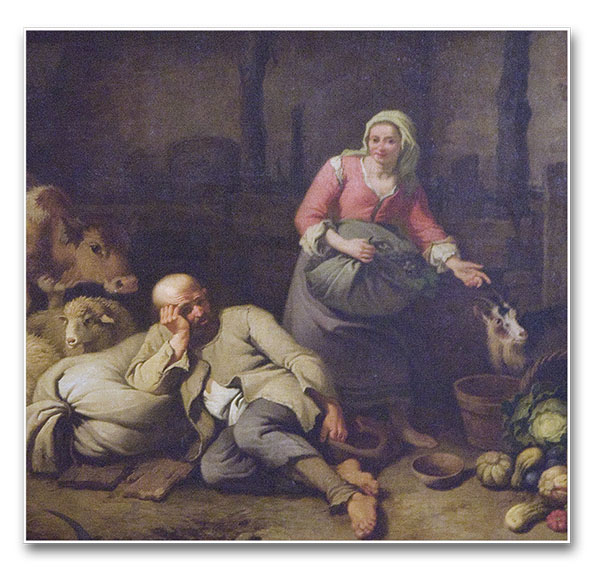
How can we repay the Lord for the gift of life?
“And now, O inhabitants of Jerusalem and men of Judah, judge, I pray you, between me and my vineyard. What more was there to do for my vineyard, that I have not done in it? When I looked for it to yield grapes, why did it yield wild grapes?” (5:3-4).
Isaiah interrupts the continuity of the song to invite the people to play the role of juror in a plea between the vinedresser and his vineyard; he desires collective participation, that all be witnesses of everything that he has done for his vineyard. The vinedresser dedicated himself entirely; it is only right that he should ask for retribution. He who receives must also give, because love is repaid with love.
The retribution claimed by God for himself is not, however, exclusive; He wants man to exercise charity with others, to practise works of justice with his neighbour. A contemporary author goes so far as to say: “The object of the verb ‘look’ does not refer to God. He is not looking for the response of a love directed to himself, but to human beings, to the poorest, to the neediest.”2
Unfortunately, the result is almost always wild grapes; this is why we see so many wars, hatred, persecutions, inhumane acts, etc. Is this how we repay the Lord for the gift of life?
It is insane to live as if God did not exist
“And now I will tell you what I will do to my vineyard. I will remove its hedge, and it shall be devoured; I will break down its wall, and it shall be trampled down. I will make it a waste; it shall not be pruned or hoed, and briers and thorns shall grow up; I will also command the clouds that they rain no rain upon it” (5:5-6).
The result of unfruitfulness is punishment, as happened to the servant who did not strive to make the talent received from his master yield more (cf. Mt 25:14-30). For this reason, the vineyard will lose its protection and will be trampled underfoot. A land uncared-for is destined to fail, as is the soul without the help of grace. No one is interested in a field that produces wild vegetation. When man does not cooperate with God’s plan, his life is devalued.
Often the Lord awaits repentance from those who go astray and sends them “signs”, through a variety of means, so that they may recognize their mistake, but everything has a limit. “Denying the rain to the fields is God’s last gesture to His people to call them to conversion.”3
We must not abuse divine goodness; it is insane to live as if God did not exist. Running away from our responsibility brings its consequences. On the contrary, by fulfilling our duty we guarantee protection for oneself: “If the vineyard had corresponded to the intentions of the beloved, no hand would have touched it. The obedient are untouchable.”4
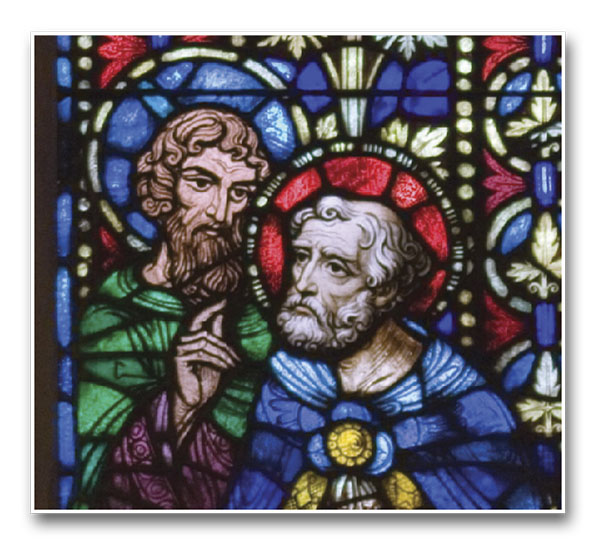
The witnesses become the accused
“For the vineyard of the Lord of hosts is the house of Israel, and the men of Judah are His pleasant planting; and He looked for justice, but behold, bloodshed; for righteousness, but behold, a cry!” (5:7).
To dispel any possible remaining doubt, the prophet makes a harsh application: those who had been called upon to be witnesses in a judgement now become the accused.
How often had Yahweh been indulgent towards them! As a chosen nation, it was Israel’s duty to be holy, to be a model for other peoples. God had not failed to send prophets to convey His will to them. Whenever they asked His help, He heard their cries and came to their aid.
What was the result of all this effort? With masterly language, Isaiah employs rhythmic comparisons: mišpāṭ / miśpāḥ… ṣedāqâ / ṣeՙāqâ (justice / bloodshed… righteousness / a cry). The people gave the Lord the opposite of what He was looking for; they were rebellious and unjust.
What does the Lord want of us?
Through the song of the vineyard, God accused His people of being ungrateful to Him who had bestowed so many benefits on them throughout their history – for not giving back in due measure for everything they had received as a demonstration of His love.
Let us now place the problem in today’s context.
The Lord gives every human being the graces necessary to act righteously and to become holy, to adore Him and to serve Him. How do we respond to so many favours received? Restitution is a difficult virtue to practise. We often think that the successes obtained in our lives are the fruit of our qualities, of our personal effort. We rarely recognize that everything comes from God.
What does the Lord want from us? We were created for an end; no one is in this world without a purpose. If we want to enjoy eternal beatitude, we must not turn a deaf ear to God’s voice; we must live according to the obligations of every baptized person. Let us not, therefore, be barren vines, but produce fruits of righteousness! ◊
Notes
1 Alonso Schökel, SJ, Luis; Sicre Diáz, SJ, José Luis. Profetas. Isaías, Jeremías. 2.ed. Madrid: Cristiandad, 1987, v.I, p.133.
2 Marconcini, Benito. Guía espiritual del Antiguo Testamento. El libro de Isaías (1-39). Barcelona-Madrid: Herder; Ciudad Nueva, 1995, p.84.
3 Jiménez Hernández, Emiliano. Isaías: el profeta de la consolación. Madrid: Caparrós, 2007, p.34.
4 Motyer, J. Alec. Isaías. Barcelona: Andamio, 2005, p.93.



